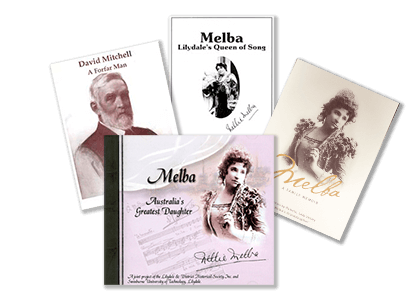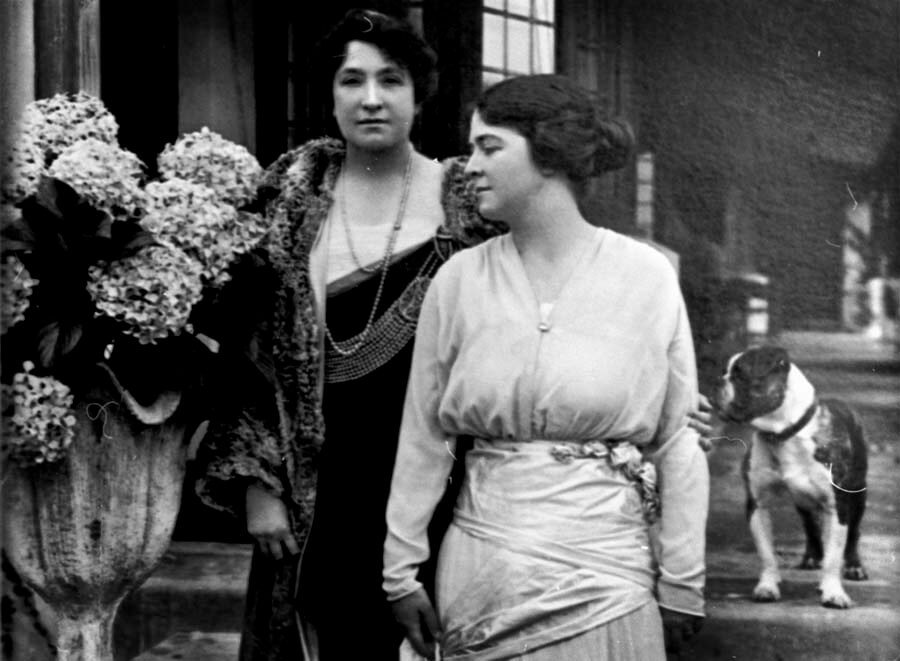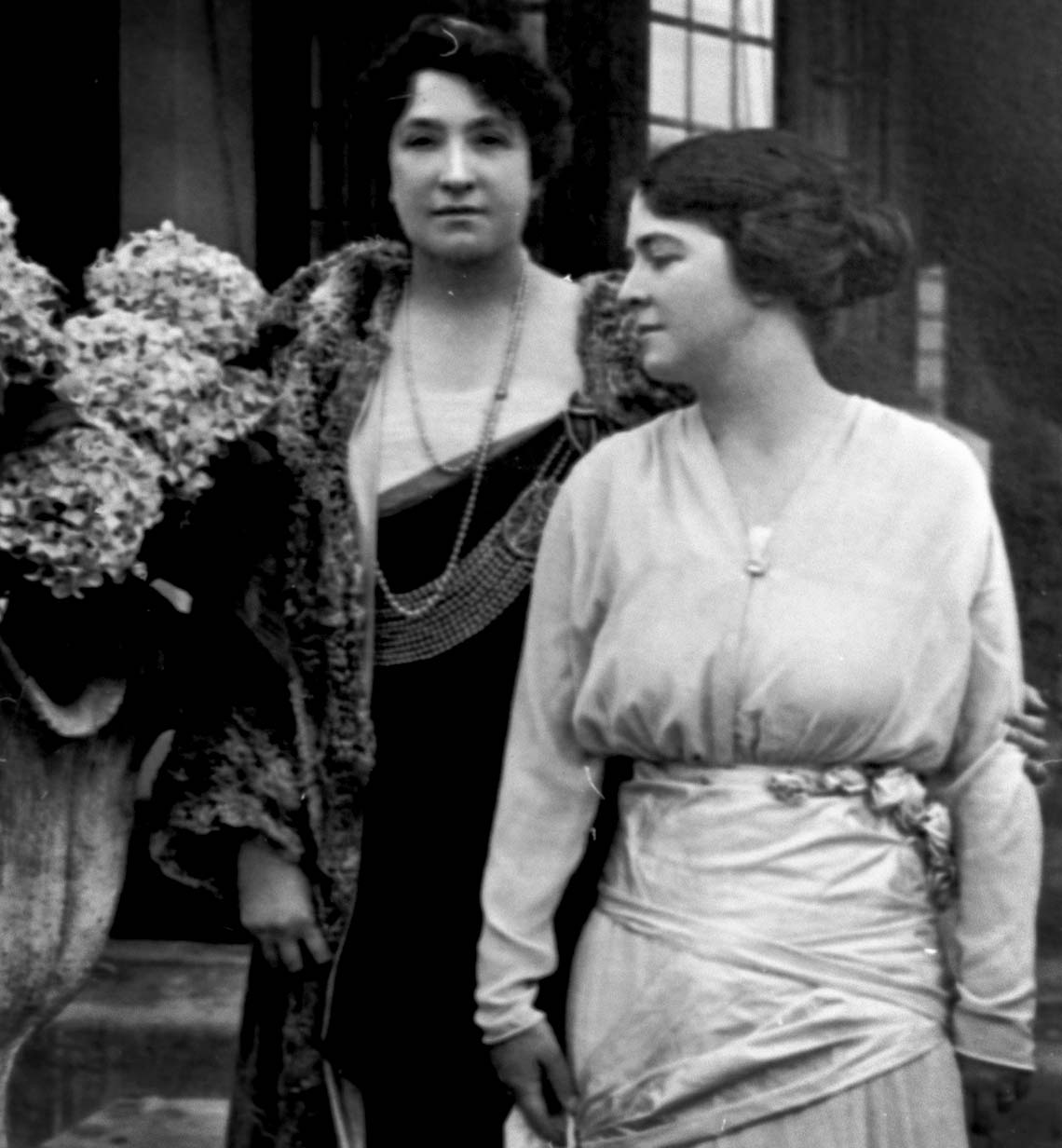
Biography | Covent Garden’s New Star
After the excitement of Paris, the opening of the Eiffel Tower and meeting so many people, Melba must have been apprehensive about returning to London.
Melba and George settled in at the Metropole Hotel and Lady de Grey quickly sprung into action introducing her to London society – “ there were balls, receptions, parties, the theatre and other functions to attend”.
Lady de Grey made sure everything was organised for Melba’s return to Covent Garden including the press.

Melba’s first performance back at Covent Garden was on June 6, 1889 in Rigoletto. This was the first time in England Jean Lassalle impersonated the jester. (1)
Disappointingly, the audience was small which was put down to the fact there had been a violent thunderstorm which kept the audience at home.
One person in the audience was The Times critic who wrote that both Melba and Lassalle were suited to perfection.
“Madam Melba has now justly earned the title of a great singer; she has gained at the Théàtre de la Monnaie the experience and confidence which were all that were lacking on the occasion of her former appearances in London. Even greater certainty of command over her fine voice will no doubt be acquired as time goes on.” (2)
The critic noted Jean Lassalle was massively built and not ideal as the deformed jester but his performance was fine except he sang in French while Melba sang in Italian:
“… at another representation of the opera he will, it is to be hoped, have learnt the Italian words and not again commit the solecism of singing his part in French. In the great duet with which the third act closed both singers were magnificent, giving themselves up to the situation with rare vigour and abandon.” (3)

Despite the review, to Melba her success in London started on June 15, 1889 and she dramatically described her great relief at conquering London:
“I date my success in London quite distinctly from the great night of June 15th, 1889, when I appeared as Juliet to Jean de Reszek’s Romeo. It was the first time that Romeo and Juliet had been given in French in England. What a night it was! And what a cast! Apart from the unforgettable singing of Jean, that dear little soul and great little artist Mlle. Bauermeister was the burse, Edouard de Reszke was the friar, Mancinelli was conducting, and at last, at long last, there was a packed house. I had been so used to singing to poor houses during my three appearances in England that I wondered if I should have to wait till I was middle-aged before people came to hear me. And so, when I heard the roars of applause, and when I read the next day, the criticisms, I felt inclined to say, ‘It’s been a fight – a hard fight – but London really is awake now.'” (4)
The Standard wrote:
“Madam Melba seems absolutely incapable of a false intonation, and is almost unsurpassed in the purity and sweetness of her tones. Her shake is close and even, the few embellishments she introduces are almost invariably in good taste, and in all she does, sincerity and dramatic forces are conspicuous. That ‘Caro Nomeá could ever have been better sung than last night is difficult to believe; none but the warmest terms of admiration can do justice to the performance.'” (5)
Melba’s season continued with various performances.
On June 20,1889 she appeared in Gounod’s Romeo and Juliette with Edouard and Jean de Reszke. (6)
On Tuesday, July 2 1889, Melba was part of the royal Italian Opera’s special performance at Covent Garden to celebrate the visit of the Shah. Melba sang the mad scene from Lucia di Lammermoor after which the royal party arrived. Everything stopped, as outside the band of the Coldstream Guards played the National Anthem. After being seated in the Royal box the program was re-commenced. (7)
Advertisments in The Times kept the audiences informed of Melba’s appearances:
- Friday, July 12 Melba to again appear in Rigoletto with Bauermeister, Scalachi and Engel. (8)
- Monday, July 15 Melba to sing in Romeo and Juliette in French. (9)
- Saturday, July 20 Melba to sing Faust with Jean and Edouard de Reszke, Bauermeister, Lassalle and Scalachi. (10)It was during a performance of Faust that Melba averted a serious accident at Covent Garden.During the first act, one of the wings in the study scene caught fire and a sheet of flame was visible to the audience. Before everyone panicked, Melba stepped forward, reassured everyone and the fire was put out. Melba was not in that act and did not need to be backstage at the time but her quick thinking and cool head saved what could have become a disaster. After the fire was controlled, the opera continued. (11)The opera season closed on July 27 with Romeo et Juliette. It was also the wedding day of the Duke and Duchess of Fife and those in the royal box were still dressed in their wedding outfits. The guests included the Prince and Princess of Wales, the King of the Hellenes, the Grand Duke of Hesse and the Crown Prince of Denmark. (12)Nellie had conquered Covent Garden but Lady de Grey had helped her conquer society.Melba described her as a true friend, great patron of the arts and had an instinctive nobility about everything she did or said. London society of the time was a world away to the young Australian but with the help of Lady de Grey, gradually, Melba, in her own words “became a part of the great procession and not merely a spectator”. (13)
“Nellie revelled in her new social round, carried away by the elegance and the lively wit of the habituas. Places and names known to her by tradition now surrounded her every day and became familiar. Although fascinated, she could still be shocked at the sight of a barefoot crossing-sweeper in the cold mornings, shocked by the dirty market surrounding the magnificent opera house… She had achieved her ambition and proved her claim. She had been more than fortunate in her education and teachers, but it was her own talent and her own will that had carried her through. She had proved that she was right! It was the Voice that had made her, of course; she knew that it was all she had and that at all times she had to care for it.” (14)
While Melba was working and doing the social rounds George spent time with his father on his farm at Littlehampton where he had his own Welsh pony.
When Nellie and George were visiting Lady Armstrong before returning to Paris, the topic of George’s christening was raised. Lady Armstrong was shocked to discover George had not been christened and at once arranged for it to take place at the Rustington church.
Pamela Vestey recounts the event of her father’s christening:
George was dressed in his best kilted sailor suit with his hair neatly brushed. “The vicar required of the godparents that they should renounce the devil and all his works for their godson. Watching the water drain from the font with a gurgle, George, pleased, remarked, ‘Voilà c’est le Diable qui depart.'” Literally translated it means the devil has now gone. His godfather was his uncle George Armstrong and his godmother Winifred Rawson a friend from the family’s time in Mackay. (15)

After the Christening, Melba and George returned to Paris which was to be her home for the next 10 or so years.
References
(1) A. Murphy, Melba: A Biography, Doubleday, Page & Co, New York, 1909, pg 47.
(2) The Times, London, Monday, June 10, 1889 pg 8.
(3) Op. cit.
(4) N. Melba, Melodies and Memories, Thornton Butterworth Ltd, London, 1925, pg 70-71.
(5) A. Murphy op. cit. pg 48.
(6) The Times, London, Tuesday, June 18, 1889; pg 8.
(7) The Times, London, Wednesday, July 03, 1889 pg 11.
(8) The Times, London, Friday, Jul 12, 1889; pg 12.
(9) The Times, London, Friday, Jul 12, 1889; pg 12.
(10) The Times, Friday, Jul 19, 1889; pg 8.
(11) A Murphy, op. cit., pg 49.
(12) A Murphy op. cit. pg 49.
(13) N. Melba, op. cit. pg 78.
(14) P. Vestey, Melba: A Family Memoir, Pamela Vestey, Coldstream, Melbourne 2000, pg 61-61.
(15) P. Vestey, op. cit., pg 62.
Online Shop
Purchase books, CDs, photographs and other merchandise



Share Your Information with the Museum!
Email us your info (and images) to:
[email protected]
Our home is the Old Lilydale Court House:
61 Castella Street, Lilydale 3140
Hours of opening:
By appointment only:
Fridays 1 to 4pm and Saturdays to Mondays 11am to 4pm.
Sundays are preferred.
Closed Public Holidays

Nellie Melba Museum
Contact Details:
Sue Thompson: 0475 219 884
Email: [email protected]
Share your info with us:
[email protected]
Our home is the Old Lilydale Court House:
61 Castella Street, Lilydale 3140
Hours of opening:
By Appointment only:
Fridays 1 to 4pm and Saturdays to Mondays 11am to 4pm.
Sundays are preferred.
Closed Public Holidays

Nellie Melba Museum
Contact Details:
Sue Thompson: 0475 219 884
[email protected]
Nellie Melba Museum
Contact Details:
Sue Thompson: 0475 219 884
[email protected]
Our home is the Old Lilydale Court House:
61 Castella Street, Lilydale 3140
Hours of opening:
By appointment only:
Fridays 1 to 4pm and Saturdays to Mondays 11am to 4pm.
Sundays are preferred.
Closed Public Holidays
Share Your Information
with Nellie Melba Museum!
Sue Thompson: 0475 219 884
[email protected]

